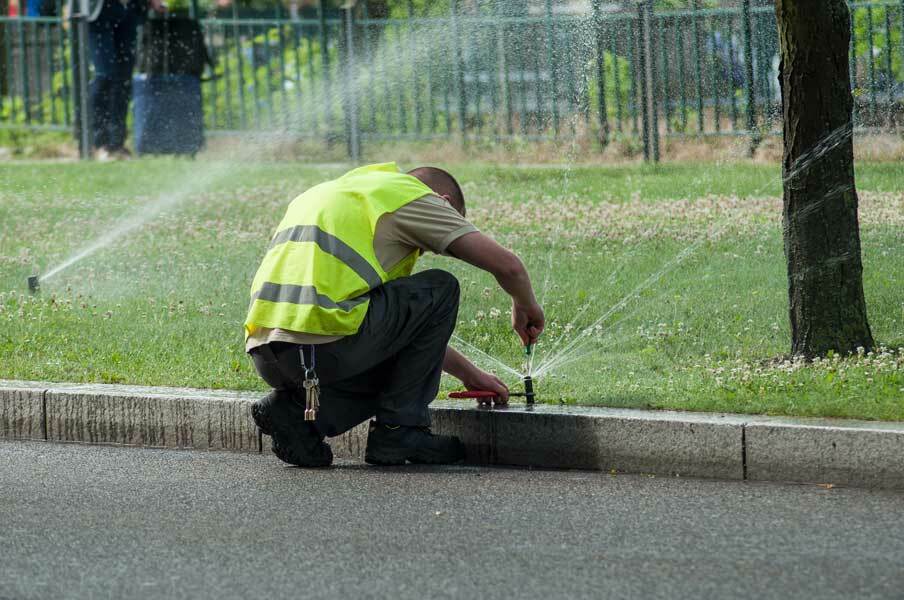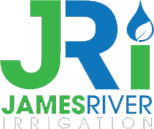Irrigation Services

IRRIGATION SERVICE AND INSTALLATION
- Minor and major repairs – No job is too big or too small
- Backflow preventer testing and certification
- Maintenance contracts – Spring start up, winterization, system inspections
- Electrical troubleshooting – Locate and repair control wire faults and malfunctioning valves
- System renovations and upgrades – Add sprinkler heads or entire new zones to accomodate changes in the landscape
- Rain sensor and controller replacement and upgrades – Install a water saving rain sensor or efficient modern controller
- 24 Hour Emergency Service
Irrigation and Installation:
James River Irrigation installs irrigation systems using only the best products available. We see an irrigation system as a long term investment by the owner and we design and build them to be as worry-free as possible. We are so confident in our products and installation techniques that we offer a 5 Year Warranty on our residential systems.
We design our systems to allow for precise watering and overlapping coverage to eliminate dry spots. The system can be programmed and adjusted to provide the proper amount of water in each area of your yard. Not only does this save money through reduced water usage, but also provides for a healthier landscape.
James River Irrigation is capable of designing and installing systems of any size, from two-zone residential systems, to computer-controlled commercial systems. We are experienced in all phases of installation. When you’re looking for a contractor who is capable of handling the most complex of jobs, you need look no further than James River Irrigation.
Our clients can expect the highest standards of quality service, dependability, and courteous professional staff.
We will respect our clients, competitors, and community and will compete fairly in the marketplace, not on the basis of price alone, but instead on the value of TOTAL CUSTOMER SATISFACTION.
We will strive to enhance the community in which we live and do business and to provide our employees with rewarding and fulfilling careers.
Common Irrigation System FAQs
What type of irrigation system is best for my yard?
Will it raise my water bill?
Do I need a permit to install an irrigation system?
How do I maintain the system?
Is the system automatic?
How often should I water my lawn or garden?
Can I add more zones or sprinkler heads later?
How do I know if there’s a leak?
Do I need to do seasonal maintenance?
Spring: Start the system by turning the water back on, checking the back flow preventer for leaks, checking the adjustment of each head and programming the controller.
Summer: Monitor efficiency and adjust for weather.
Fall: winterize the system by using high volume to force most of the water out of the pipes, heads, valves and back flow preventer.
